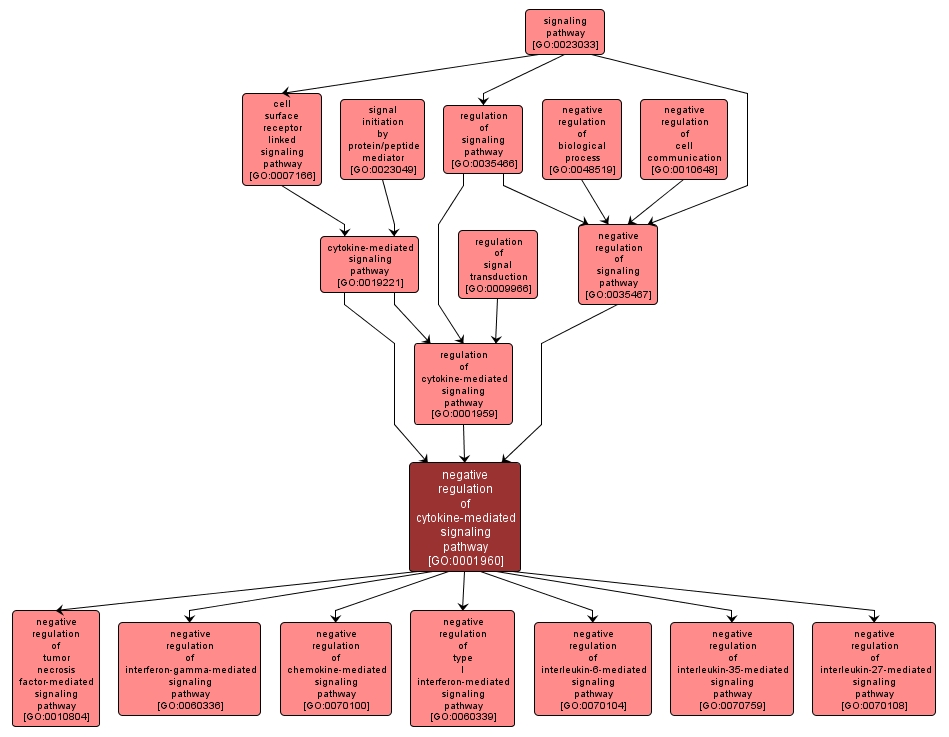GO TERM SUMMARY
|
| Name: |
negative regulation of cytokine-mediated signaling pathway |
| Acc: |
GO:0001960 |
| Aspect: |
Biological Process |
| Desc: |
Any process that stops, prevents or reduces the frequency, rate or extent of the cytokine mediated signaling pathway. |
Synonyms:
- negative regulation of cytokine mediated signaling pathway
- negative regulation of cytokine and chemokine mediated signaling pathway
- negative regulation of cytokine mediated signalling pathway
- down regulation of cytokine mediated signaling pathway
- down-regulation of cytokine mediated signaling pathway
- downregulation of cytokine mediated signaling pathway
- inhibition of cytokine mediated signaling pathway
|
|

|
INTERACTIVE GO GRAPH
|














